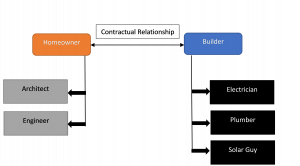How important is it to have a contract when you build a house?
As the party building the house, you are responsible for 100% of the risk associated with building the house. You could distribute some of that risk verbally and it would be legally binding when it comes to building your home. The challenge with oral contracts however is that it becomes very messy when you have to prove your rights in terms of the agreement what was reached.
Having a building contract is inexpensive and fairly simply if your contract is drawn up by someone that understands the intricacies of a building contract. The fundamental agreement is normally that you want a home (a certain scope of works) and the builder wants to be paid an agreed amount (contract sum) to build that home. But what if you want to change something? How will you determine how the builder should be compensated for such change?
One would probably also agree on a completion date so you can arrange to move from where you would be staying during the build. It would therefore be wise to include some sort of penalty should the builder not finish at the agreed completion date. But what if it rains more than anticipated or something happens that neither you nor the builder have any control over (Covid-19 is a case in point)? How do you extend the completion date without having the builder pay penalties?
Delegating the risk is very difficult when you only have a verbal agreement. Below is a simplified diagram of the contractual relationships on a building site.

Reducing the above relationships to a written contract is a relative quick and cost-effective process that can eliminate hours of disputes, frustration and unhappiness in the future. Many building processes starts like a “honeymoon” and end in “divorce”.
Contact us and let us help you allocate the risk fairly and save you potential disaster and ensure that you can demonstrate adequately what was agreed. We don’t just sell, we solve.
By Johan Richards
25 November 2021
